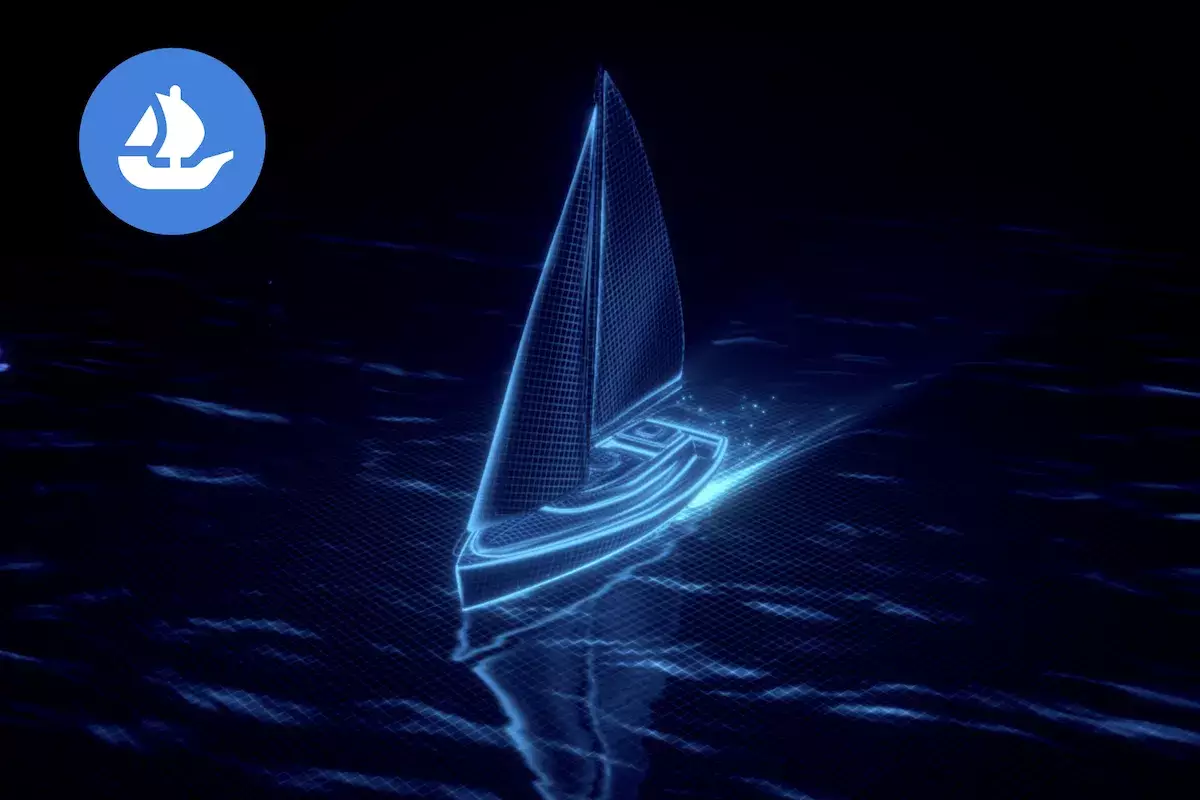The realm of non-fungible tokens (NFTs) has witnessed a meteoric rise, bringing platforms like OpenSea to the forefront of digital commerce in recent years. OpenSea, once the dominant force in NFT trading, is now contending with a more competitive landscape as new marketplaces emerge and vie for market share. This article explores the recent developments at OpenSea, including its new OS2 platform, the implications for NFT holders, and the discourse surrounding potential token incentives.
OpenSea’s journey began when the NFT terminology was still new, and its structure provided an accessible interface for users to communicate with digital assets. From 2020 onward, the platform quickly entrenched itself as the universal hub for NFT transactions, capturing an astonishing 90% of the trading volume by 2022. However, the cryptocurrency market is notorious for its volatility, and OpenSea’s dominance began to wane as rival platforms emerged and introduced novel incentives to attract NFT enthusiasts away from the incumbent.
In early 2023, OpenSea made a strategic acquisition of the Gem NFT platform, rebranding it as “OpenSea Pro.” This merger represented not just a name change; it indicated a significant shift aimed at revitalizing OpenSea’s offerings. Part of this shift involved a notable airdrop of “Gemesis NFTs” to original Gem users, a gesture that would later prove pivotal for early access to the OS2 launch.
As the NFT space rapidly evolved, OpenSea found itself on the defensive, implementing new strategies to retain its user base. The introduction of OS2 has generated heightened interest, especially among Gemesis NFT holders. These early adopters received priority access to the OS2 private beta, while others are left waiting for opportunities to join. This distinction sparked dissatisfaction among established traders who maintain substantial transaction histories but lack Gemesis NFTs, leading to cries of unfairness and exclusion from influential figures in the space.
OpenSea, in response, reassured the broader community that veteran users have not been overlooked, despite not providing a detailed framework of how it plans to integrate these long-standing supporters into the new ecosystem. For many, the OS2 private beta represents a glimpse into the platform’s future, highlighting the ongoing balancing act between retaining loyal customers and attracting new users.
One of the standout features of the OS2 initiative is the Experience Points (XP) system. Essentially, users accrue XP through various forms of engagement, such as listing NFTs, submitting offers, or interacting within OpenSea’s Discord community. The XP system aims to incentivize user activity, paralleling strategies that competitors like Blur have employed to boost their engagement levels.
However, this innovative approach also raises questions about the long-term viability of such rewards. As the NFT marketplace matures, the challenge lies in effectively translating XP into tangible benefits, raising speculation regarding the potential for tokenization. Despite OpenSea’s historical stance against releasing its own tokens, chatter surrounding a possible token airdrop continues to permeate discussion forums, igniting excitement and anticipation among community members.
As OpenSea embarks on this new chapter, it is clear that the NFT marketplace has shifted dramatically in recent times. With platforms like Blur and Magic Eden gaining traction through their own token offerings, OpenSea must adapt to maintain relevance and regain the trust of its user base. The company’s decision to lay off a significant portion of its workforce in late 2024 signals a moment of introspection and reallocation of resources toward building OS2 from the ground up.
The success of OS2 hinges largely on the feedback generated from private beta testers. OpenSea faces the critical task of incorporating user insights into the platform’s evolution, transforming it into an ecosystem that not only draws in newcomers but also acknowledges the contributions of those who have been steadfast supporters through fluctuating markets.
In this fast-paced arena of NFTs, OpenSea’s strategic pivot with OS2 marks an important milestone in its evolution. The platform’s ability to balance innovation with user management will determine its future standing in the NFT landscape. Enthusiasts are left anticipating the unveiling of new features and rewards, with the specter of a token airdrop lingering tantalizingly on the horizon. As the NFT community continues to grow and adapt, OpenSea must remain vigilant and committed to nurturing its relationships with both new users and established, loyal supporters.
















Leave a Reply